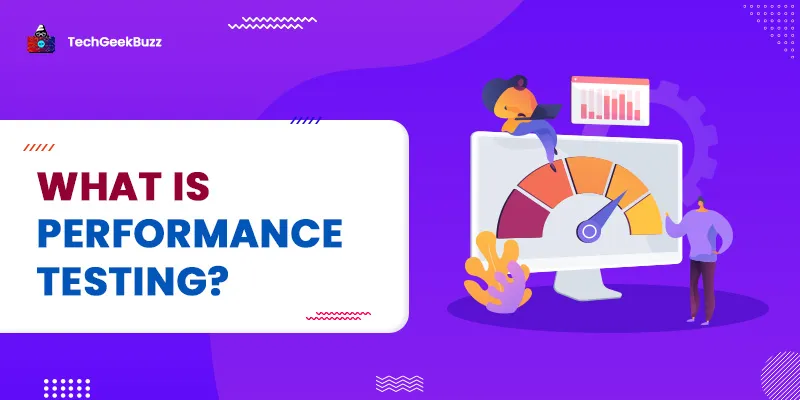Continuous testing is a significant step in the process of software development. It is important for producing successful and stable software products.
What is Continuous Testing?
The continuous testing process consists of many interconnected steps that together establish the optimum performance of a product. It is generally leveraged to weed out possible business risks associated with software products.
Continuous Testing Tools
But as tough as continuous testing is, shortlisting an ideal continuous testing tool is also a hard drill. To make the latter part easy, here is a list of carefully selected continuous testing tools for you to consider:
1. Bamboo
A continuous testing tool ideal for any team size, Bamboo is a fast, smart, and reliable solution. It has a continuous integration build server that allows automatic builds, releases, and tests. The platform is compatible with parallel testing. It also has provisions for branch detection, triggers, docker agents, permissions, quarantine, etc.
Bamboo is easy to set up. It can be used with a wide variety of programming languages and also with some popular technologies like AWS CodeDeploy and Docker. It is equipped with dedicated and efficient agents that allow programmers to run critical builds as well as hotfixes.
The continuous testing QA platform provides complete visibility on code alterations. Its real-time collaboration features make it a preferred tool among professional programmers. Also, it can be integrated with HipChat, JIRA, BitBucket, etc. Bamboo has been widely known as a continuous integration and deployment tool. It can successfully reduce the configuration time, thereby making the whole process quick and efficient. The tool also comes with a 30-day free trial.
The pricing starts from $10 for a small-sized team. Pricier plans are also available for mid to large-sized teams.
2. Kobiton
Ideal for mobile software products, Kobiton is a popular continuous testing tool. It is a codeless automated testing solution providing automated test scripts for DevOps. The platform can support the testing process while ensuring that anomalies and glitches in the targeted app are well highlighted and tracked.
It can also integrate with a wide range of CI/CD platforms. Kobiton is equipped with real-device testing that includes manual as well as automated testing. It can support programmers and software testers in visual testing, device lab management, performance testing, and more. Kobiton is widely praised for overcoming traditional testing challenges.
Also, the tool for accomplishing continuous testing in DevOps mitigates the testing risks and eliminates any flaky tests.
3. Katalon Studio
A comprehensive and well-known continuous testing solution, Katalon Studio is widely used to bring test automation in CI/CD as well as in DevOps. It supports API, mobile, web and desktop applications and doesn't propose limitations in terms of operating systems. It is compatible with the mainstream operating systems that include Linux, Windows, and macOS.
The testing platform is equipped with valuable features to help programmers through each step of continuous testing. It can record and execute test steps for reporting, analytics, and CI/CD integration. Katalon Studio supports and executes continuous testing with the aid of seamless Agile Jira integration. Its ability to run testing rounds codeless makes it an easy to use and preferable tool. Moreover, Katalon Studio follows interactive results formats to provide easily comprehensible insightful reports.
It also supports real-time monitoring and rapid feedback mechanism to provide a deep view into the anomalies of a software product. The continuous testing tool comes in free and paid tiers and is widely appreciated as one of the most renowned testing tools.
4. Appium
An open-source tool for continuous testing, Appium is specifically designed for mobile testing. It is widely adopted by small to large-scale teams. The platform provides a significant degree of customization to meet different continuous testing requirements.
Appium supports mobile cross-platform testing for iOS as well as Android devices. Appium allows easy and reliable test writing, uploading, execution, and analysis that too directly over the cloud. It has an easy setup and provides sophisticated and reliable results along with supporting a wide range of physical devices, simulators, and emulators.
For all the above-mentioned reasons, Appium is considered one of the leading open-source quality assurance tools .
5. Jenkins
Jenkins is a free and open-source platform. It is a Java-based continuous testing tool able to run in an EJB container. It comes equipped with continuous development and regular deployment functionalities. The tool is designed with a sophisticated interface with easy usage points.
It seamlessly supports the testing of massive codebases and can also execute automated testing of builds. Jenkins assists in scaling up the system and allowing easy addition of nodes. This distributes the workload uniformly among the nodes. When it comes to distributing work across different machines, Jenkins wins the game.
Also, it provides more than 1,000 plugins to extend its functionality. Jenkins also supports the process of deploying software products. The continuous testing QA platform is compatible with macOS, Windows, and Linux operating systems. It provides functionality to send email notifications to encourage team collaborations.
6. CruiseControl
Ideal for small to large-scale enterprises, CruiseControl is a free platform for executing continuous testing. It provides users with some valuable features that aid throughout the process of testing and help establish premium software quality.
It allows flexible customization in the testing process. The inbuilt plugins further facilitate the testing and provide a range of controls and amenities to testers. CruiseControl can also be integrated with source control systems, such as CVS, SVN, and Git. Its extensible framework allows setting up multiple projects on a single server.
CruiseControl also supports remote management. Not only this, but the platform can also send notifications through email and SMS. All this can be achieved via a plugin.
7. Eggplant
Available under a commercial license, Eggplant is an automation testing tool allowing efficient and reliable continuous testing. It supports various technologies that make it suitable for testing mobile, web, and POS software products. It is one of the unique continuous testing tools as it has an image-based solution for testing.
The platform can interact well with AUTs to execute unique testing principles. It replicates the user's point of view to provide an eagle view of the software's functionality. The results are generated with images and screenshots for better understanding.
The platform provides a test lab that allows 24*7 access to continuous testing and continuous deployment. Eggplant also supports stable integrations with CI/CD testing tools to the likes of Bamboo, CA Agile Requirements Designer, and Jenkins.
To increase its functionality and to get the recording and playback functionality, this can be integrated with Undo, which is a tool for recording and playback testing. The tool is compatible with novice as well as maven programmers and software developers.
8. Selenium
If you are a professional software tester, you must have heard about Selenium. It is among the best open-source quality assurance tools. The tool is preferred among novices as well as by professional software developers and testers. It is a stable and open-source tool for continuous testing as well as other types of software testing .
Selenium is compatible with various operating systems, such as Windows, macOS, and Linux. The platform propounds no limitations on browser type and is friendly with Firefox, Google Chrome, Safari, etc. Further, it can also be integrated with CI/CD pipeline tools. Selenium supports various phases of continuous testing and promises scalable and complete coverage tests. Its in-built IDE has features like record and playback. It can also create bug production scripts rapidly.
The platform also supports a wide range of programming languages, such as Groovy, Perl, Python, Ruby, Java, and C# for writing test scripts. The open-source testing platform provides a suite of tools, including Selenium WebDriver, Selenium RC, and Selenium IDE. The platform thereby allows flexible and robust parallel testing.
9. Watir
Watir is another open-source testing tool that supports continuous testing as well. As an open-source continuous testing QA platform, it provides extensible amenities to software testers. The platform is based on Ruby and supports rigorous cross-browser testing as well. It supports a wide array of browsers, such as Opera, Chrome, and Firefox. Watir also has functionalities like headless browser testing and data-driven testing.
This makes it an efficient tool for CI/CD pipeline as well as for headless browser testing. It can flexibly be integrated with BDD frameworks, such as RSpec, Cucumber, and Test Unit. The platform is an ideal choice for teams of varied sizes.
10. Testsigma
A stable and ideal choice for small to large-scale enterprises, Testsigma is believed to overcome almost all testing constraints and become one of the best solutions when it comes to continuous testing. It is a cloud-based, AI-driven platform that allows programmers and developers to run stable and scalable tests on various software products. Testsigma is compatible with testing API, mobile, and web applications.
The platform can also be quickly adapted by newcomers. It provides efficient test infrastructure with devices, browsers, OSs. The incorporated AI principles assist in identifying bugs beforehand. It can integrate freely with CI/CD tools to the likes of Slack, Jira, Sauce Labs, and Jenkins. The Platform can also provide results through screenshots and video formats.
11. TestComplete
TestComplete is available under a commercial license and is widely used for continuous testing. It can effectively test web, desktop, and mobile applications. It supports a massive range of programming languages, including Javascript, VBScript, Python, and C++. It supports both data-driven as well as keyword-driven testing.
The new version also has AI-enabled functionalities that elevate its efficiency and performance on various parameters. Due to the incorporated AI, TestComplete can now automatically identify and update tests upon a change in UI of the AUT. The platform allows easy integration with Selenium WebDriver, SOAP UI, TestNG, etc. It can undergo open integration with CI/CD platforms such as Zephyr, Jenkins, and Git.
12. JIRA
A popular and sophisticated solution for small to large-scale enterprises, Jira is an efficient and scalable platform for continuous testing. It can efficiently identify bugs and system anomalies. The platform possesses no limitations when it comes to integrating with other tools.
Jira is equipped with kanban boards that assist in maximizing outputs throughout testing. Jira also fuels communication, assisting in managing roadmaps.
The real-time reports generated provide a deeply insightful view of software products being tested. The added functionalities of customizable workflows, rich APIs, and custom filters elevate its preference among software testers.
Wrapping it Up
Continuous testing is a critical step in software testing. To make sure that a software product functions in an intended way, every aspect of testing has to be implemented, and one of them is continuous testing that can be seamlessly done through the aid of the continuous testing tools detailed here.
People are also reading:
- Best Integration Testing Tools
- Best GUI Testing Tools
- Top Agile Testing Tools
- Best API Testing Tools
- Best Regression Testing Tools
- Best Performance Testing Tools
- What is Software Testing Lifecycle?
- Automated Browser Testing with Edge and Selenium
- Web Services Testing Tools
- Best Email Testing Tools
- Best SOA Testing Tools



![What is Waterfall Model? [Phases, Pros, & Cons]](/media/new_post_images/Waterfall_Model.webp)

Leave a Comment on this Post